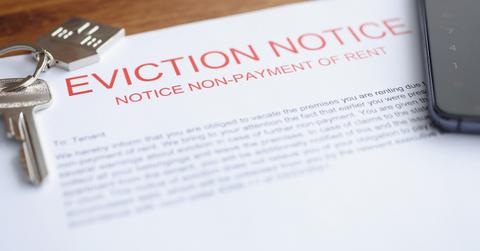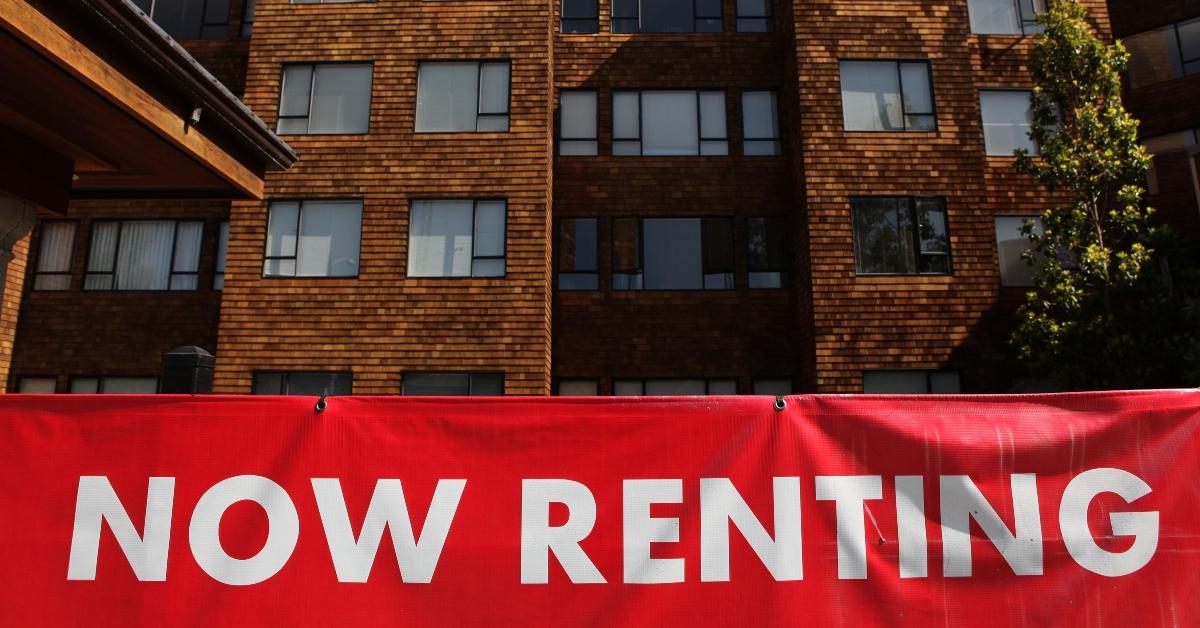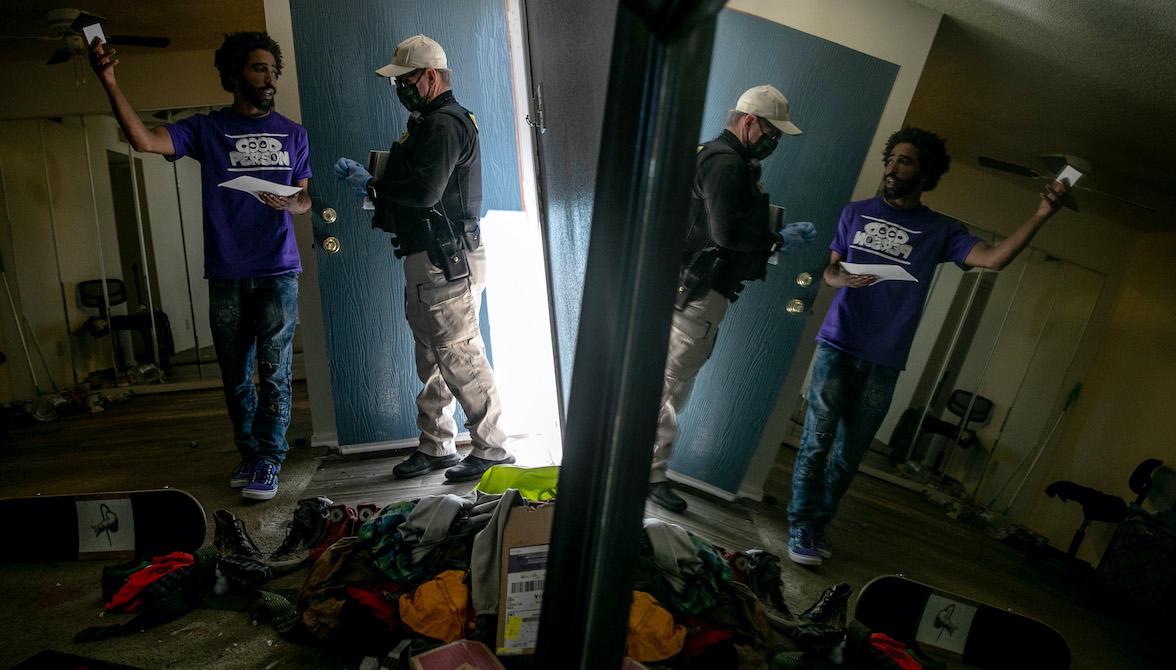You Can Rent With an Eviction on Your Record — Here's How
If you're looking to rent but have a history of notices plaguing your background checks, here's how to rent with an eviction on your record.
March 8 2023, Updated 12:48 p.m. ET

- 1. Talk to your previous landlord about your eviction
- 2. Find a landlord who doesn't run background checks
- 3. Manage your credit
- 4. Be honest about any evictions on your record
- 5. Prepare a renter's resume
- 6. Consider renting from a private landlord
- 7. Contact an apartment locator
- 8. Offer a higher deposit to a landlord
- 9. Get a co-signer to rent for you
- 10. Get the eviction removed from your record
Evictions remove tenants from their homes at the discretion of the landlord for unpaid dues or other reasons. Those who haven't complied with lease or rent agreements, written or verbal, may set themselves at risk for eviction. Once evicted, the acts may stay on personal records and impact your housing choices in the future.
If you're looking to rent but have a history of notices plaguing your background checks, here's how to rent with an eviction on your record.
1. Talk to your previous landlord about your eviction

In some instances, you may be able to talk to your previous landlord about the grounds of eviction. Explain what happened and see if there's any way to remedy that. They may keep an open mind to meeting means for erasing the eviction notice from your record altogether if you're able to reach a compromise on how to do so. If there's a solid relationship with your past landlord, they may advise how to go about addressing the eviction on your record to future property owners looking to rent out spaces.
2. Find a landlord who doesn't run background checks

While it's a bit more uncommon, there's always the possibility that there are landlords who offer their services background-check free. If you're looking to avoid having to face rejection over the eviction on your record, finding a landlord who avoids background checks altogether is the way to go. You'll have the security knowing they won't be able to look into your past renting history and have a higher chance of finding a new place to live.
3. Manage your credit
Credit reports show more than just negative impacts or inflated bill prices after missed rent payments — they're able to display a positive past credit history, too. Landlords can see higher credit scores, timely credit card payments, and a reassuring financial past when they're looking at background screenings. Strong financial standing elsewhere may be reassuring to potential new property managers who may notice an eviction on an incoming tenant's background search.
4. Be honest about any evictions on your record

Eviction in in Phoenix, Arizona.
If you're asked about any past evictions or history of eviction notices from landlords during the housing search, it pays to be up-front and honest. Avoid lying about any experiences with eviction, even if you're working with a landlord who has forgone the background search process. Take the time to explain your side of the situation to potential new landlords so that they may gauge an understanding of the situation. If you're caught lying, it's nearly certain that the landlord won't rent to you.
5. Prepare a renter's resume

A renter's resume is a great way to compile a positive counterargument to directly combat the eviction on your record. Renter's resumes are similar to employment resumes or CVs. They should list past rental history, past incomes from previous jobs, and relevant references. When treated like a legitimate resume, there's a higher chance that landlords reviewing your application may balance this with any eviction notice on your record. In addition, it'll add more of a human appeal.
6. Consider renting from a private landlord

Two women look over documents.
When looking into how to rent with an eviction on your record, consider renting through a private landlord. Renting from a private landlord makes the renting process a little more personal and allows for better communication as to why the eviction happened in the first place. While it's encouraged to explain your situation to any landlord, opting to lease with someone who you're able to form a relationship may alleviate any tension over previous evictions.
7. Contact an apartment locator

When you're wanting to figure out the best way to rent with an eviction on your record, many are unaware that there are services designed for identifying the best places to rent that mesh well with your personal situation. Apartment locators and rental brokers are able to work with you when looking for the next place you'll live. They will be able to assist with any roadblocks of past evictions. Contacting a company to ask them if they'll help you search for a new apartment may ease some ongoing stress.
It's their job to assist you in finding a place to live, so asking for help wouldn't step over any pre-existing boundaries or make it seem like you're asking too much from rent brokers or apartment locators. You're simply asking them to work with you while having an eviction on your record.
8. Offer a higher deposit to a landlord

Money is hard to turn down, and offering higher pay right off the bat to potential landlords may elevate your chances of landing a new apartment. If you have enough financial flexibility, you can present a larger deposit to your landlord when negotiating the possibility of becoming a new tenant at their complex. A higher deposit is considered to be a legal bribe, so you wouldn't be taking any illegal action when trying to secure your next place.
Typically, it's safe to offer a few months worth of rent in advance, which would ease any financial pressures from landlords and help you get an apartment even with an eviction on your record. It's an ultimate win-win for both parties involved in the leasing deal and helps you prepare another tactic for how to rent with an eviction on your record.
9. Get a co-signer to rent for you

Getting a co-signer to sign the lease on your behalf isn't a bad idea. A co-signer will bear the responsibilities of the unit that's being rented out, and it must be clear that they're ready to commit to that before the lease is signed. Finding someone to rent an apartment with you is another equally applicable idea, where you would split the cost of living in the unit while sharing the apartment as a whole.
For those struggling financially, it would be wise to find a cosigner to take charge of the lease if the original tenant isn't able to pay rent. This will allow the tenant to have some sort of financial support that will allow payments to the landlord to be made without them relying on the evicted renter's payment history. A roommate's healthy renting history may support your likelihood of being accepted into new apartments.
10. Get the eviction removed from your record
If you have an eviction on your record, the best option would be to get the eviction removed from your record. It's entirely possible — just as it is to rent with an eviction on your record — but requires your prior landlord to erase any history of eviction from your background. Once an agreement between you and a landlord has been reached, a judge will step in and officially expunge the eviction.
If you were issued a notice but never legally faced off with your landlord, you're still able to reach a private agreement where written proof demonstrates that you've been absolved from the eviction. When looking to rent with a present eviction history, finding a way to remove the notice from your background altogether is the primary way to go when searching for a new apartment to rent.

